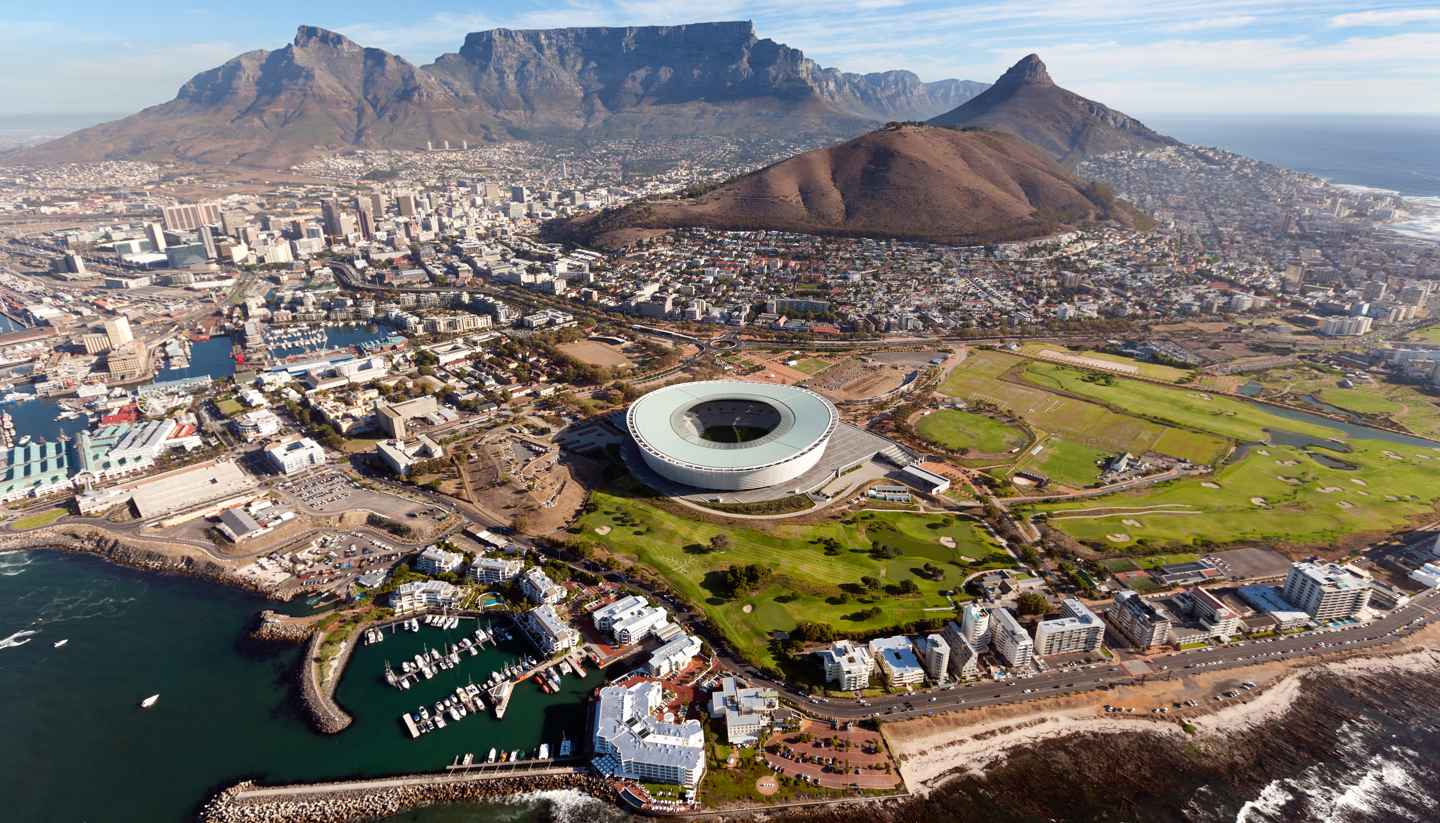South Africa: Doing business and staying in touch
Doing Business in South Africa
Business practices in South Africa are very westernised. The exchanging of business cards is important and a firm handshake between both men and women is common. Punctuality is still highly prized and it is advisable to address hosts as 'Mr' or 'Ms' until requested to use first names, which usually happens soon after formal greetings are dispensed with. The triple handshake is common among black businesspeople, although the standard handshake usually takes precedence with international visitors.
Cape Town is relatively informal and more laid back than Johannesburg. Its businesses tend to be creative rather than industrial, so suit and ties are not always in evidence. Pushiness and a demand for instant decisions are not appreciated. People like to mull things over and will freeze out anyone too in-their-face. Capetonians joke it's dubbed the Mother City because everything takes nine months to happen. Have patience, bru (brother).
In Durban, most industries do expect a suit and tie at business meetings. The more modern or artistic industries, such as IT and the media, tend to display a more informal attitude to dress.
In cosmopolitan Johannesburg, all of South Africa's 11 official languages are spoken, but English is the most widely used language in government and commerce. Businessmen and women in Johannesburg tend to wear suits, although ethnic outfits are increasingly evident.
Gifts are not expected in either business or social situations. Business cards are often exchanged where businesspeople meet informally, such as in hotel lobbies, airport lounges and at product launches. Most initial business-related social contact is along the lines of 'let's do lunch'; dinner and breakfast appointments are far less common.
Office Hours
There is no single office opening time and it varies from business to business, generally from either 0800 or 0900 to 1630 or 1700, Mon-Fri.
Economy
The South African economy dominates Sub-Saharan Africa. Agriculture is strong enough for virtual self-sufficiency in foodstuffs: livestock is reared extensively, and large amounts of sugar, maize and cereals are produced. Wine and fruit are exported in large quantities.
The industrial sector has traditionally been based on mining as one of the world's largest exporters of gold, platinum and diamonds. It also has considerable deposits of coal, chromium, manganese and vanadium. The telecommunication networks have seen major improvements in recent years as undersea cables have brought international bandwidth in larger amounts at cheaper prices.
After decades of double-digit inflation, the period from 2004 to the onset of the global financial downturn was marked by healthy growth and inflation of under 5%. In the run up to the 2010 FIFA World Cup a construction boom benefitted the country and inflation was capped to 5.7% in 2010. The inflation rate was recorded at 6.3% in 2016.
Unemployment remains a major problem, with an official figure of 25.5% in the third quarter 2012, but in many rural and urban townships it is estimated to be much higher. Other long-term problems include poverty, a high level of HIV/AIDS infection and an inadequate infrastructure for public transport and electricity.
The country still has a legacy two-tiered economy; one rivalling developed countries and a more basic informal sector, leading to an uneven distribution of wealth and income. South Africa is a member of the Southern African Development Community (SADC) and the African Union (AU).
South Africa has three major trade show, conference and exhibition venues: Sandton Convention Centre in Johannesburg, Cape Town International Convention Centre, and the International Convention Centre in Durban. Smaller venues exist in the hotels and universities of other major towns. South African Tourism provides information for conference organisers and delegates.
GDP
US$295 billion (2016).
Main exports
Mineral raw materials (coal, diamonds, platinum), agricultural produce, chemical products and machinery.
Main trading partners
UK, US, Germany, Italy and China.
Keeping in Touch in South Africa
Telephone
To call home, the cheapest way is to use Skype or an international calling card like the WorldCall card from the national operator, Telkom. That lets you call any destination from a Telkom line, including those in hotels, at standard Telkom rates. Area codes are used even for local calls.
Mobile Phone
Roaming agreements exist with international mobile phone companies. Coverage extends to most of the country except the very remote areas. GPRS for data coverage is also widespread. Airport kiosks can sell you a phone or local SIM card if you show some ID.
Internet
Internet cafes are common in towns throughout the country and wireless is available at airports and in upmarket hotels. Most hotels charge for connectivity and it's far cheaper to find the nearest internet café.
Media
South Africa's many broadcasters and publications reflect the diversity of the population. Freedom of the press is constitutionally protected and many newspapers have begun to flex their muscles with stronger and more critical political analysis. That includes fighting to retain their freedom, as a new bill that threatens to curb that right has been tabled. The main English language newspapers are The Daily Sun, The Star, Sowetan, The Citizen and weekly Mail & Guardian. International papers are widely available in hotels and airports, and a select few in newsagents and bookshops. One of the most well-respected and analytical news websites is The Daily Maverick (www.thedailymaverick.co.za).
The state-run SABC and commercial E.tv networks broadcast nationally, and many viewers subscribe to pay-TV operated by Multichoice. The proliferation of commercial and community radio stations includes Highveld, Jacaranda, 702 Talk Radio and Classic FM.
Post
Airmail takes a minimum of two days to Europe, three days to USA and four days to Australia.
Post Office hoursGenerally Mon-Fri 0830-1530; Sat 0800-1100; longer in airports and shopping malls. The smaller post offices close for lunch 1300-1400.




